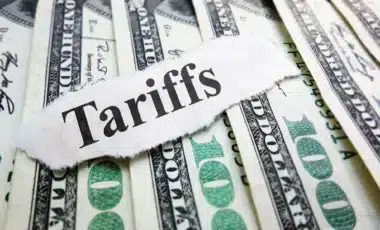Florida drivers will soon face tougher penalties for speeding, as a new law comes into effect on July 1. The law, commonly referred to as the “super speed” law, targets those who exceed the speed limit by more than 50 mph. With the introduction of this measure, authorities aim to curb the rising number of fatalities and serious injuries caused by speeding across the state.
This new law signals a substantial change in traffic enforcement, with strict penalties that could lead to hefty fines, mandatory court appearances, and even jail time. As the state works to tackle its high rate of traffic-related deaths, the law seeks to send a clear message: speeding will no longer be tolerated.
Key Features of the ‘Super Speed’ Law
The “super speed” law introduces severe consequences for drivers who exceed the speed limit by more than 50 mph. The initial offense will result in a $500 fine, a mandatory court appearance, and up to 30 days in jail. The law also stipulates that offenders must appear before a judge, who will determine whether the fine or jail time is appropriate for the violation.
For those caught speeding again within five years, the penalties become significantly harsher. Repeat offenders will face a $1,000 fine, 90 days in jail, and the possibility of a one-year suspension of their driver’s license. These severe measures aim to deter speeding and reduce the state’s high rate of traffic fatalities.
🚨 New Florida Law Starts July 1
— cgonzalezlaw (@cgonzalezlaw) June 18, 2025
Florida drivers, take note: Starting July 1, anyone caught driving over 100 mph or exceeding the speed limit by 50+ mph will be required to appear before a judge—with possible jail time and fines up to $1,000. 🛑💡 pic.twitter.com/VArog7gyyF
The Tragic Incident That Sparked the Law
The law was pushed forward by victims’ families and road safety organizations, driven by the tragic death of 11-year-old Anthony Reznick. In a senseless accident, Reznick was struck by a driver with a long history of speeding violations. Despite multiple offenses, the driver had never served time in jail. This incident was a pivotal moment for the Department of Highway Safety and Motor Vehicles (DHSMV), which pushed for stronger enforcement to prevent similar tragedies in the future.
Reznick’s death underscored the need for stricter laws and highlighted the issue of repeat offenders who continued to engage in reckless driving without facing serious consequences. The new law is intended to close this gap and prevent such tragedies from occurring again.
Young Drivers and the Road Ahead
One group that the DHSMV is particularly concerned about is young drivers. According to the department, individuals between the ages of 16 and 25 are the most frequent offenders of speeding laws. As part of the law’s goal to reduce speeding, there is hope that it will instill a greater sense of responsibility in young drivers, teaching them the serious consequences of speeding early on.
The introduction of this law is seen as part of a broader strategy to change the driving culture in Florida, making it clear that driving is a shared responsibility and that speeding not only jeopardizes the driver’s safety but also that of others on the road. By targeting younger drivers, the law seeks to create a more cautious and law-abiding generation of motorists.
Public Response: Mixed Reactions to the Law
While many have welcomed the new law, hoping that it will save lives and reduce speeding-related accidents, not everyone is in favor. Some residents have criticized the law, claiming that it may become a “money-making machine” for the state. Critics argue that the hefty fines will fill the state’s coffers without addressing the root causes of speeding and reckless driving.
Supporters, however, insist that the main objective of the law is to raise awareness and deter dangerous behavior. The DHSMV emphasizes that the law is not intended to simply generate revenue but to foster a culture of respect for traffic laws and safety on the roads.
Similar Laws in Other States
Florida is not the first state to implement tougher penalties for speeding. Other states, such as Georgia and Virginia, have introduced similar laws with notable success. For example, Georgia has reported a 14% reduction in speed-related fatalities since the introduction of its “super speed” law. Florida lawmakers are optimistic that their new legislation will have a comparable effect in reducing fatalities and accidents caused by excessive speeding.
As the law prepares to take effect, authorities will be monitoring its impact, not only in terms of legal compliance but also in the overall reduction of speeding-related incidents across the state.









